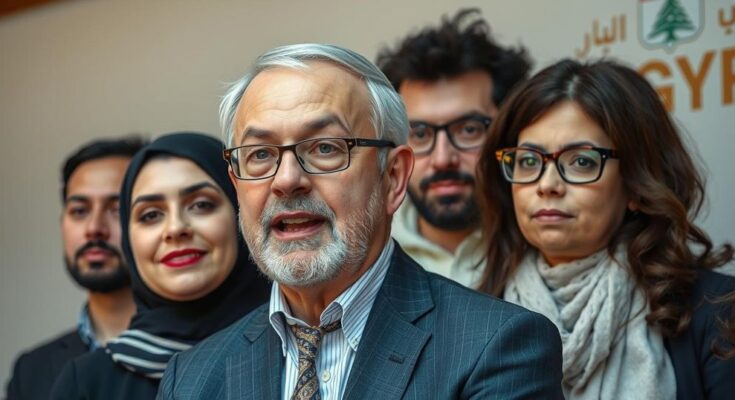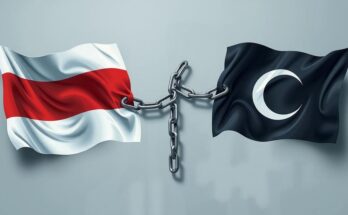Abdul Rahman al-Qaradawi’s family has appealed to the Lebanese Prime Minister to prevent his deportation to Egypt due to life-threatening risks. Arrested on December 28, al-Qaradawi faces charges linked to his political activism. His family warns of severe human rights violations he may suffer if extradited, highlighting concerns over Egypt’s treatment of dissenters.
The family of Egyptian opposition activist Abdul Rahman al-Qaradawi has urgently appealed to Lebanese Prime Minister Najib Mikati for his immediate release, amidst escalating fears regarding his imminent deportation to Egypt. They argue that al-Qaradawi’s life is at serious risk should he be returned, due to an existing arrest warrant linked to politically motivated charges.
The appeal follows al-Qaradawi’s arrest on December 28 at the Masnaa border crossing after entering Lebanon from Syria. He faces a five-year prison sentence in Egypt in connection with charges of opposing the state and inciting terrorism, stemming from an article he wrote in 2012. His family emphasizes Lebanon’s historical role as a defender of freedoms, urging intervention to prevent potential rights violations against him.
With a legal background suggesting potential torture if extradited, his family’s statement highlights the severe human rights concerns associated with Egypt’s treatment of political dissidents. Al-Qaradawi’s history as a critic of both former President Hosni Mubarak and current leader Abdel Fattah el-Sisi illustrates his longstanding opposition to the Egyptian regime. His family remains hopeful for his safe return to Turkey, where he resides with his daughters, as they continue to raise awareness regarding his plight.
The situation surrounding Abdul Rahman al-Qaradawi reflects broader political tensions in the Middle East, particularly regarding the treatment of dissidents in Egypt. Al-Qaradawi is known for his critical stance against both the Mubarak and el-Sisi administrations, which have been accused of significant human rights violations. The Lebanese government’s response to his arrest could have wider implications for political asylum seekers in Lebanon, a country historically recognized for its relative freedom of expression compared to its neighbors.
The appeal by Abdul Rahman al-Qaradawi’s family underscores the urgent need for the Lebanese authorities to consider the serious consequences of his potential deportation to Egypt. The family’s invocation of Lebanon’s legacy as a bastion for human rights emphasizes the crucial role of international norms in safeguarding individual liberties. This case might serve as a litmus test for Lebanon’s commitment to political freedoms amidst ongoing regional upheaval.
Original Source: www.aljazeera.com




